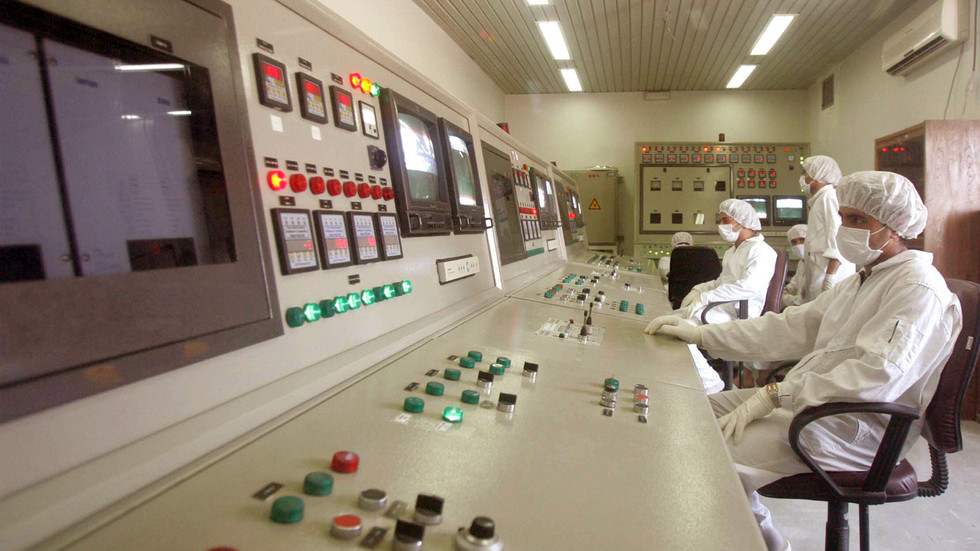The E3 thanked the nuclear agency for its objective reporting of Iran’s nuclear programme and encourage the Director General Rafael Grossi to keep the Board informed of all activities, and on developments requiring clarification by Iran.
“We would like to express our appreciation for the Agency’s professional and impartial work, and in particular, inspections of Iran’s facilities,” they said in the statement.
We note that following discussions between the Director General and Vice-President Mohammad Eslami, and that, due to the Director General’s efforts, a Joint Statement was agreed where Iran agreed “on a voluntary basis” to “allow the IAEA to implement further appropriate verification and monitoring activities”, the statement read.
“We also note that the Director General reported in his report that Iran has agreed to facilitating an increase of the frequency and intensity of Agency verification activities,” they added.
“We will hold Iran accountable for the prompt and full implementation of such agreed actions, considering the seriousness of the continued and increasingly severe escalation of its nuclear programme. These actions have moved Iran even further away from its 2015 commitments,” they continued.
“The E3 are especially alarmed by the recent sampling at Fordow, which showed the presence of HEU particles of uranium enriched to 83.7% U-235. This is significantly inconsistent with the level of enrichment declared by Iran and Iran has yet to convince us that this was due to its claimed ‘unintended fluctuations’,”the statement said, adding, “We call on Iran to fully cooperate with the nuclear agency to provide technically credible explanations for the origin of these particles.”
“This unprecedented enrichment at up to 83.7% U-235 is an extremely grave escalation which comes against the highly concerning backdrop of continued accumulation of high enriched uranium up to 60% and Iran continuing to expand its enrichment capabilities,” the statement read.
“There is no credible civilian justification for enrichment to this level in Iran. This step, along with Iran’s wider nuclear programme, brings Iran dangerously close to actual weapons-related activities. This further undermines Iran’s arguments that its nuclear programme is only for peaceful purposes. We support the Director General continuing to regularly and fully report on this issue.”they underlined.
Iran denies seeking nuclear weapons, stressing its nuclear technology is solely for civil purposes. Tehran has also dismissed the report about 84% uranium enrichment, and rejected any deviation in Iran’s civilian nuclear program.
“Iran’s decision to remove Agency surveillance and monitoring equipment has had detrimental implications for the Agency’s ability to provide assurance of the peaceful nature of Iran’s nuclear programme. We urge Iran to re-install all equipment deemed necessary by the IAEA and to allow for the monitoring and verification of its nuclear programme as agreed in the JCPOA. It is of utmost importance that Iran implements in a timely manner the Joint Statement between the Atomic Energy Organization of Iran (AEOI) and the IAEA to allow the IAEA to implement further appropriate verification and monitoring activities. Iran should take the necessary steps to provide the Agency with the information necessary to rebuilding continuity of knowledge. This has become more necessary than ever given the increasing seriousness of Iran’s escalations,” they underscored.
Iran showed to the world the peaceful nature of its nuclear program by signing the JCPOA with six world states — namely the US, Germany, France, Britain, Russia and China — in 2015. However, Washington’s unilateral withdrawal in May 2018 and its subsequent re-imposition of sanctions against Tehran left the future of the deal in limbo.
Negotiations between the parties to the deal kicked off in Vienna in April 2021 in a bid to salvage the JCPOA.
The discussions, however, have been at a standstill since August 2022 due to Washington’s refusal to remove the sanctions and offer guarantees that it will not exit the agreement again.
